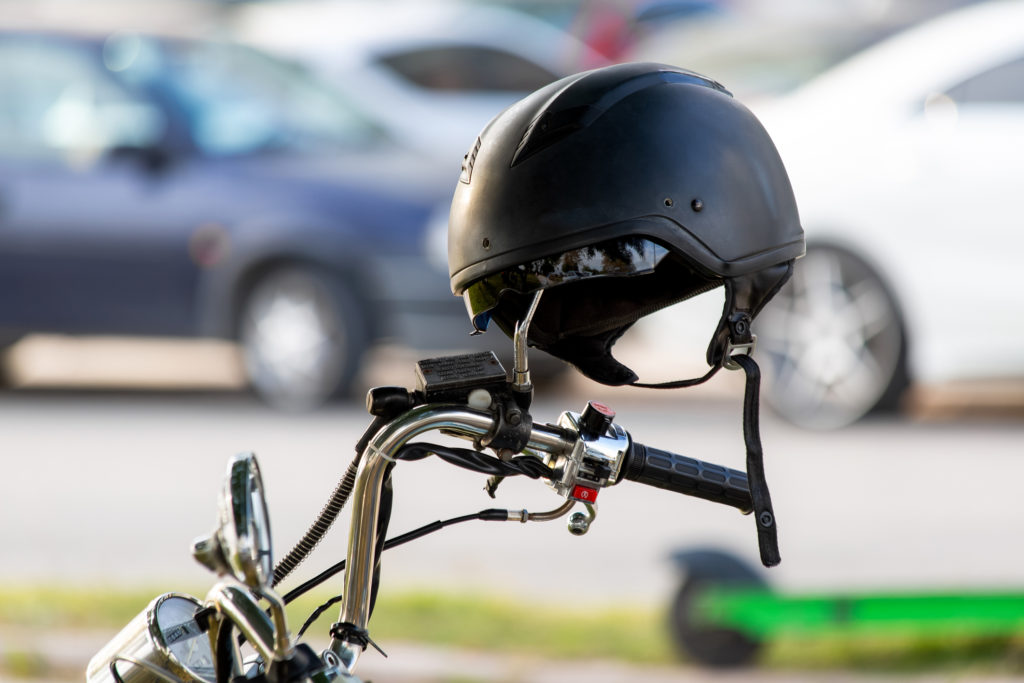Illinois Motorcycle Helmet Laws
Motorcycle Accident,Personal Injury - March 28, 2024 by Horwitz, Horwitz & Associates
New Hampshire, Iowa, and Illinois are the only three states in the country with no motorcycle helmet requirement. Nineteen states, and the District of Columbia, have universal helmet laws which apply to all riders. The other twenty-eight states have limited helmet laws that apply only to some riders, mostly those under eighteen.
In support of motorcycle helmet laws, most of these jurisdictions cite insurance statistics about the cost of head injuries and safety statistics about helmet use. Furthermore, many proponents essentially liken motorcycle helmet use to seat belt use. Both are seemingly simple precautions which can make a big difference, they claim. However, for the reasons outlined below, these arguments have never gained much traction in the Prairie State.

Why Doesn’t Illinois Have a Motorcycle Helmet Law?
As for the economic argument, nearby Michigan’s experience with motorcycle helmet laws is an interesting case study. In 2012, lawmakers in the Wolverine State considered relaxing the state’s universal helmet law. Many pundits immediately predicted that, if the legislature did so, accident-related medical costs would skyrocket.
Certainly, these costs increased when Michigan relaxed its helmet law, but only by about 10 percent. So, the economic argument in favor of motorcycle helmets may not be as strong as some pundits claim.
Additionally, as outlined below, crash helmets do not reduce many of the most serious kinds of motorcycle injuries. That includes head injuries. As a result, many people believe that the proven benefits of motorcycle helmet use are too limited to justify a broad law. There are some other arguments against a motorcycle helmet law as well.
Visibility is a key safety area for motorcycle riders, and one that is closely related to helmet use. Some people assert that brightly-colored helmets improve rider visibility. That may be true, but there is little empirical evidence which supports this assertion.
On the other hand, there is some evidence that this claim is completely false. Helmet laws, this theory goes, decrease the number of motorcycle riders on the street. They simply do not want to deal with the added burden. Fewer riders means that the ones who remain out there are even less visible than they were before.
Finally, although today’s motorcycle helmets are much smaller and better-designed than the ones available just a few years ago, wearing a helmet is nothing like wearing a seat belt. Seat belts are almost completely non-intrusive. Additionally, seat belts are factory-installed. With regard to motorcycle helmets, neither of these things are true.
Injuries in Motorcycle Crash Claims
Motorcycle helmets do reduce some head injuries. But headgear does little or nothing to prevent the major kinds of motorcycle crash injuries, including:
- Motion-Related Head Injuries: Just like a person can scramble an egg by shaking it, the extreme forces in a vehicle collision scramble the brain without causing a trauma injury. These head injuries are always permanent. Dead brain cells do not regenerate.
- Neck and Spine Injuries: This same motion often injures the neck and spine. Additionally, when riders are thrown off their bikes, they often land on their backs.
- Internal Bleeding: Blood loss is usually the official cause of death in motorcycle crash cases. Since internal organs have no protective skin layer, they bleed profusely if they rub against each other in the slightest way.
Overall, whether they are wearing helmets or not, motorcycle riders are about twenty-eight times more likely to die in these incidents than people inside four-wheel vehicles. For a free consultation with an experienced Chicago motorcycle accident attorneys, contact Horwitz Horwitz & Associates. We routinely handle matters in Cook County and nearby jurisdictions.


